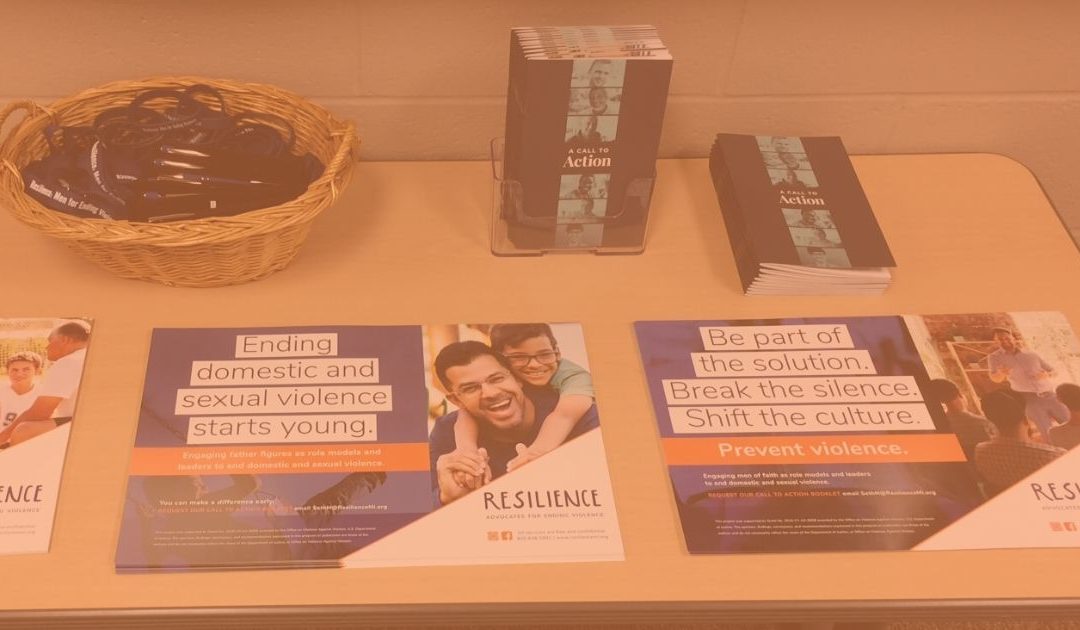Resilience Prevention Programs: Addressing the Root Causes of Violence
By Lesley Coghill, LMSW
At Resilience, we are striving to eliminate domestic and sexual violence by addressing the root causes that perpetuate violence. We are working to enhance protective factors through prevention strategies that can mitigate the likelihood of abuse occurring. Our comprehensive approach to prevention includes both primary prevention strategies to prevent violence before it occurs and secondary prevention strategies to interrupt the inter-generational cycle of violence in children exposed to domestic violence.
Our Youth Violence Prevention Programs are designed to prevent first-time victimization and first-time perpetration of domestic and sexual violence through evidence-based prevention curriculum.
Our Trauma Therapy Program for children is designed to reduce trauma symptoms for youth exposed to domestic violence with the hope that youth will have futures free from violence.
Resilient Spaces is a fee-based training program that works with local businesses, faith communities, and partner organizations to increase their understanding of domestic violence and how to respond safely and effectively.
To illustrate the evidence base supporting our comprehensive Prevention Program, we can show how our programs align with many of the recommended key strategies highlighted in the 2017 technical package “Preventing Intimate Partner Violence Across the Lifespan” published by the Centers for Disease Control and Prevention:
Teaching safe and healthy relationship skills. We teach safe and healthy relationship skills through social and emotional learning programs throughout our entire Prevention Program. This includes children’s therapy and all school-based youth curriculum programs (Coaching Boys into Men, LIVERESPECT, Girls on the Run, and Athletes As Leaders).
Engaging influential adults and peers. Having a positive adult role model can have an enormous impact on a child’s life. We engage influential adults including parents, mentors, educators, and coaches as positive leaders and role models to help reinforce respect and healthy relationships in the lives of youth. All of our youth violence prevention programs encourage youth to be positive peer leaders and social influencers by empowering youth to stand up for others using bystander intervention skills. This reinforces a respectful peer culture that does not tolerate disrespect or violence. We are dedicated to engaging men and boys as allies in preventing domestic and sexual violence with programs specifically designed to promote healthy manhood, respect, and gender equity.
Disrupting the developmental pathways toward violence. Trauma therapy for children exposed to domestic violence helps to prevent future violence by disrupting the developmental pathways toward partner violence through therapy for at-risk children and youth
Create protective environments. Our Resilient Spaces training program is designed to elevate the capacity of workplaces, faith communities, and personal care professionals to recognize and respond to domestic violence, support survivors, and enhance organizational policies.
Support survivors to increase safety and lessen harm. We utilize Cognitive Behavioral Therapy (CBT) and other therapeutic techniques to support children and their non-offending parent to increase safety and help to prevent future trauma from occurring.
Collectively, these strategies work together to help us promote healthy relationships and resilient communities so that we may realize a future free from domestic and sexual violence.
To get involved with Resilience prevention programs, e-mail us at Prevention@ResilienceMI.org
Source: Niolon, P. H., Kearns, M., Dills, J., Rambo, K., Irving, S., Armstead, T., & Gilbert, L. (2017). Preventing Intimate Partner Violence Across the Lifespan: A Technical Package of Programs, Policies, and Practices. Atlanta, GA: National Center for Injury Prevention and Control, Centers for Disease Control and Prevention.
